Online Master of Social Work (MSW)
Overview
The online Master of Social Work (MSW) program at Regis College is designed to equip students with the knowledge and skills needed for a rewarding career in social work.
The degree program emphasizes a flexible, fully online format, allowing students to balance their education with personal and professional commitments. With two track options (Traditional and Advanced Standing), the online MSW program accommodates both students with and without a background in social work, preparing them for clinical roles, licensure, and diverse career opportunities in healthcare, mental health, and social services.
You may be eligible for a one-time Rise at Regis credit, valued at $900, if you start your journey this summer. There’s a 6-credit enrollment requirement.
Calendar
Traditional
Credits: 54-60
Courses: 20
Duration: 28-32
Advanced
Credits: 30
Courses: 10
Duration: 16 months
Application Deadline:
April 6, 2026
Upcoming Start Date:
May 4, 2026





Two Ways to Earn Your Online MSW
Traditional Track
- For students with a non-social work bachelor’s degree
- 54-60 credits
- Graduate in as few as 28 months
- Develop a strong foundation in generalist practice and specialize in clinical social work
Advanced Standing Track
- For students with a BSW degree (earned within 6 years of application to our MSW program)
- 30 credits
- Graduate in as few as 16 months
- Build on prior BSW education, with added focus on clinical social work
- 3.0 GPA in required
Accreditation
New England Commission of Higher Education
Council on Social Work Education
The Regis College Master of Social Work (MSW) program is accredited by the Council on Social Work Education (CSWE). CSWE is the sole accrediting body for social work programs in the United States.
Only graduates of CSWE-accredited schools are recognized by states as eligible to sit for state licensing examinations. Graduates of the Regis MSW program are well positioned for careers in social work with a degree from our CSWE-accredited social work program. For specific licensing requirements for your state, visit state requirements on our website.
As a CSWE-accredited program, the MSW at Regis College prepares students for careers as competent and professional clinical social work practitioners and leaders who work for a more just and humane society. In developing sound practice knowledge and skills, students benefit from the commitment and expertise of highly talented and experienced faculty and field instructors. The MSW program supports students in pursuing their practice passion and serving as social worker practitioners.
For more information about social work accreditation, please see:
https://www.cswe.org/about-cswe/faqs/
Assessment of Student Learning Outcomes
All programs accredited by the Council on Social Work Education’s (CSWE) Commission on Accreditation (COA) are required to measure and report student learning outcomes. All students are assessed using a minimum of two measures on their mastery of the nine competencies that comprise the Educational Policy and Accreditation Standards (EPAS). These holistic competencies reflect the dimensions (knowledge, values, skills, and cognitive & affective processes) of social work practice that all social workers are expected to master during their professional training.
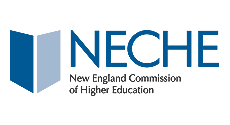
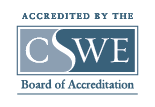
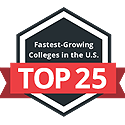
Careers with an Online Master of Social Work
Social Work Supervisor
As a social work supervisor, you’ll mentor less experienced social workers and perform an array of administrative duties. You’ll review cases, critique work, and offer guidance to social workers on your team. Employers look for candidates with excellent communication, leadership, and relationship-building skills.
Employers often include:
- Outpatient care centers
- Hospitals
- Community centers
- Nonprofit organizations
Clinical Social Worker
This role is focused on the mental health care needs of individuals, families, couples, and groups with an emphasis on behavioral and emotional disorders. As a clinical social worker, you will share coping strategies and develop treatment plans under a physician’s guidance.
Employers often include:
- Private practice
- Physician group practices
- Individual and family services agencies
Hospice Social Worker
Hospice social workers provide emotional and logistical support to individuals and their families facing the end of life. Hospice social workers also provide assistance with insurance, hospice, and Medicaid/Medicare paperwork, as well as help with paperwork after the patient’s death.
Employers often include:
- Hospitals and nursing homes
- In-house or in-home hospice companies
- Private hospice and palliative care settings
Medical Social Worker
Medical social workers provide patient care, draft discharge instructions, and outline aftercare information. Depending on the employer and/or setting, medical social workers might also communicate with patients and rehabilitation or care programs to ensure appropriate actions are taken.
Employers often include:
- Hospitals and medical centers
- In-house or in-home hospice companies
Social Services Director
Social services directors are in charge of directing social services tasks such as admissions and transfers, as well as providing leadership for social services staff in their organization. They motivate social services staff to reach all organizational goals. In all tasks, the director must follow strict privacy and safety regulations.
Employers often include:
- Hospitals and medical centers
- In-house or in-home hospice companies
- Various in-patient facilities
MSW Career Outcomes
Earning your Master of Social Work (MSW) online prepares you for a career of purpose. Job titles that our graduates hold include the following:
- School and Career Counselors and Advisors
- Substance Abuse, Behavioral Disorder, and Mental Health Counselors
- Social Workers
- Health Education Specialists and Community Health Workers
- Correctional Treatment Specialists
Career settings include: schools and universities, therapy clinics, prisons and correctional facilities, mobile response crisis teams, hospitals, and rehabilitation facilities.
The demand for quality social workers remains high and is only expected to grow in the coming years. According to the U.S. Bureau of Labor Statistics (BLS), demand for social workers will increase by 79% between 2023 and 2033, adding more than 50,000 new jobs. There’s also high demand for substance abuse, behavioral disorder, and mental health counselors, with the BLS projecting 19% growth between 2023 and 2033.
Ready for Your Next Step?
Online MSW Curriculum

Our MSW program offers two tracks: a 60-credit Traditional track for non-BSW students, and a 30-credit Advanced Standing track for students who have already earned a Bachelor of Social Work (BSW) from a CSWE-accredited program in the past five years.
Both tracks prepare students for clinical practice, social work licensure, and specialized career paths in fields like healthcare and mental health services.
The Traditional Track of our online MSW is broken into two segments. Students will develop a strong foundation in generalist practice in the first half of the program, then specialize in clinical social work in the second half. Our Advanced Standing Track builds on prior Bachelor of Social Work (BSW) education, focusing on clinical social work.
Explore the full course lists for both tracks on our MSW curriculum page.
The program also includes an experiential learning component with a field placement requirement (480 hours/Traditional; 600 hours/Advanced Standing). Like other Master of Social Work programs, the Regis MSW curriculum may include up to 1,080 hours of fieldwork to ensure licensure requirements are met.
Student-Centered Curriculum
Traditional Generalist Track
Generalist Foundation Year
Specialized Clinical Year
Advanced Standing Track
Additional Electives*: Students in either track of the online MSW program at Regis may also fulfill one or both elective requirements from select courses in the Master of Public Health, Master of Applied Behavior Analysis, Professional MBA, and Master of Health Administration online programs at Regis College.
*Elective courses TBD. Check with an enrollment advisor for more details.
Experiential Learning Component
The online MSW program also includes an experiential learning component known as a field placement. Traditional track students complete two field experiences: 480 hours in the first field placement; 600 hours in the second field placement. Advanced Standing track students complete 600 hours in their field placement. Put your newly acquired knowledge to use while familiarizing yourself with the responsibilities and requirements of the social work profession.
Read about one student’s field placement in her community here.
Admission Requirements
The admissions process for the MSW degree program at Regis College is designed to be accessible for both traditional and advanced standing students. The program is open to students with diverse academic backgrounds, and those with a recent Bachelor of Social Work (BSW) may qualify for advanced standing.
Applicants are required to meet specific educational prerequisites and provide supporting documentation, including:
- Current resume that includes educational, work, and volunteer history
- Official academic transcripts
- Statement of Purpose
- Letter of Recommendation is no longer required.
- Program director reserves the right to request an interview
Traditional Track Requirements
- Bachelor’s degree from a regionally accredited institution
- 3.0 cumulative GPA (preferred)
Advanced Track Requirements
- BSW from a CSWE-accredited program
- 3.0 GPA in required social work courses in a BSW program
Background Checks
Our Mission
Why Choose Regis for Your Online MSW Program?
At Regis College, our Master of Social Work (MSW) program is designed to empower you with the skills, knowledge, and hands-on experience needed to make a meaningful impact in the lives of individuals, families, and communities.
Whether you’re looking to advance your career or begin a new journey in social work, our program offers a unique blend of field placement flexibility, faculty support, and a compassionate community that is committed to your success.
Here are some of the reasons why you should consider Regis for earning your MSW online:
No GRE
Flexibility
Accreditation
Career Outcomes
Personalized Support
Preparation for Social Work Licensure
Our Community
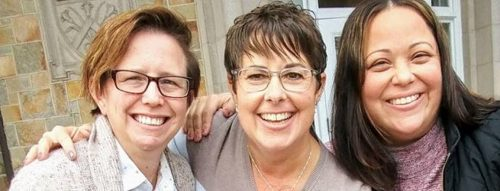
Game Nights with Faculty
Hear What Our Students Are Saying
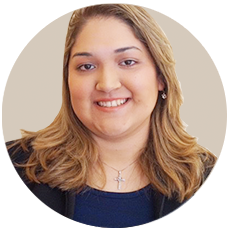
Meet Our Faculty
The Master of Social Work (MSW) faculty at Regis College consists of experienced professionals and scholars with diverse backgrounds in clinical practice, policy advocacy, and community development.
Each faculty member is dedicated to mentoring students and providing real-world insights, bringing a wealth of knowledge and expertise to help prepare students for impactful careers in social work. Through personalized guidance and support, they foster a dynamic learning environment that emphasizes both academic and professional growth.

Catherine Fuller
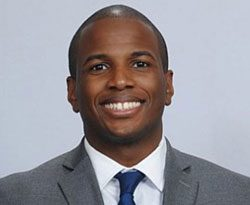
Kareem Ayodeji, Ed.D, LCSW
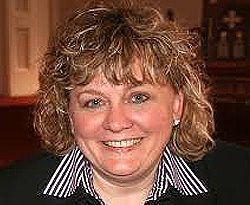
Donette C. Considine, PhD, LCSW
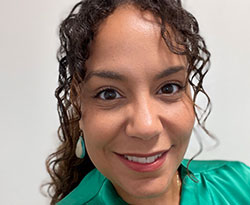
Lisa Gray, PhD, LCSW
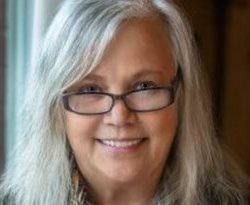
Ruth Gerritsen-McKane, PhD, LCSW
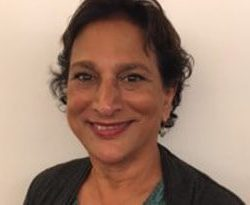
Mininder (Mimi) Sodhi, PhD, LCSW

Henry W. Kronner, PhD, LCSW
Why We Love Social Work
Frequently Asked Questions
You will find that we are a student-centered graduate program. So even though you are not physically taking courses at Regis College, we include you in our events, such as Founders Day and Heritage Week. You will also have the opportunity to provide input and feedback on the MSW program. Each semester we hold the MSW Student Community Meeting where you can give input and provide feedback about things such as curriculum, course schedule plans, elective course offerings, and more. We also have the MSW Student Advisory Board and MSW Student Ambassadors to make you feel even more a part of the program.
The specialization in clinical social work practice is another aspect of the MSW program that makes us unique. We designed our program so you can graduate with strong clinical skills and feel confident working with individuals, families, and groups in the direct practice setting. Each full-time faculty member has direct clinical practice experience, and all are licensed clinical social workers.
Something else you’ll appreciate about our program is that all the courses are designed and developed by full-time faculty. We do not rely on part-time “content experts” or curriculum/course developers. Each member of the faculty in the MSW program has one or more areas of specialization, and we use that experience to develop and design strong courses for our students. We also incorporate a variety of learning materials - including books and articles, podcasts, custom-designed media, online videos, and other materials - because we know some students are visual learners while others may be auditory.
And finally, our class sizes are small. With smaller online class sizes, you can receive individual attention from the faculty and have more opportunities to interact with peers. In our MSW program you will take most of your courses with a cohort, which means you begin and end the program with the same people.
The online MSW program at Regis College costs $900 per credit hour. Here are the other costs and fees associated with the online MSW program:
- Background check fee: $37
- Textbooks and course materials: $125/year (via Perlego)
- Graduation fee: $300
You must complete a bachelor’s degree in social work (BSW) from a CSWE-accredited program within six years of applying to the MSW program and meet the following criteria:
- Minimum cumulative GPA of 3.0 in all courses in the undergraduate social work program
- Letter grades of a B- or above in all courses eligible for transfer
- Satisfactory completion of an undergraduate generalist practicum, including at least 400 hours of field education
When applying to the MSW program, make sure to indicate that you are applying for Advanced Standing.
You know your community better than the faculty and field staff, so you are required to research potential settings and identify possible internship sites. That means it will be up to you to make initial contact to see if the agency is interested in hosting you and gather contact information. That information is then given to the MSW field director who will contact the agency. Depending on where you live, you may be required to travel outside of your community for an internship.
Read about one student’s field placement in her community here.
Online Master of Social Work Resources

Is Getting an MSW Worth It?
If you’re wondering “is getting an MSW worth it?” learn more about how earning an online Master of Social Work degree can help you achieve your career goals.

Starting a private practice, and how an MSW can help
Moving into private practice creates occupational freedom and opportunities, but it also comes with a lot of responsibility. Is it right for you?

What you can learn about spirituality and social work in an MSW program
Issues of spirituality can play a vital role in social work practice. Read on to learn more about this trend and how an MSW program can help you develop skills in this area.
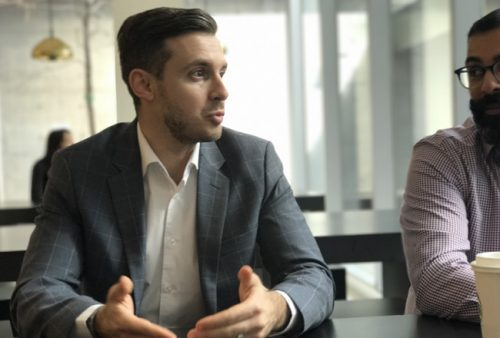
Social Work or Human Services: Which Master’s Degree Is for You?
Many of the subjects covered in social work and human services programs are similar. However, there are a few key distinguishing points that prospective students must keep in mind.

LCSW or LMSW: Exploring Your Future in Social Work
The LMSW and LCSW licenses are closely related. Here’s a look at each one’s role to help you set your goals for the license that is the best fit for your needs.

What You Can Learn About Social Work Supervision and Administration in an MSW Program
Pursuing an online master’s in social work can be a first step in advancing your career. Learn about how an MSW can prepare you for roles in social work administration and supervision.
Tuition and Fees
$900
Tuition cost per credit hour
$125
Annual cost of books and course materials through Perlego
$37
Background check fee
$300
Graduation fee
Ways to Save on Your Tuition

Regis partner employees can receive a discount on their tuition. Find out if your employer is a partner.

Federal government employees as well as active and reserve military and veterans are eligible for a 15% discount on tuition. Find out more.

Regis alumni who have earned a previous degree from Regis are eligible for a 10% discount on tuition. Speak to an advisor for more information.

We’re here to support you through the process. Speak to an advisor to learn more.
Related Programs

Online Master of Science in Applied Behavior Analysis
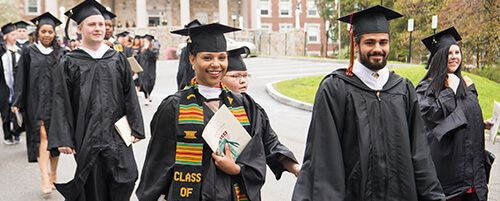
Online Master’s Degrees
